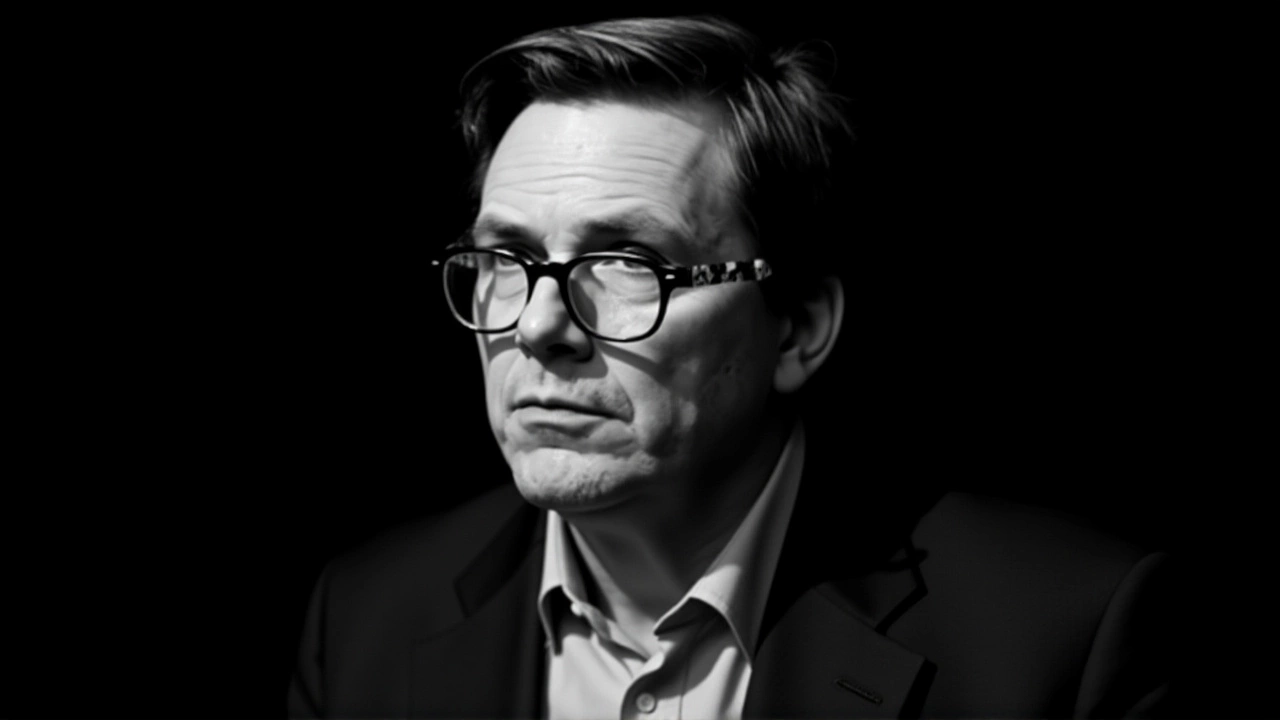On November 19, 2025, over 80 countries will mark International Men's Day with messages, videos, and quiet acts of recognition — not as a commercial spectacle, but as a grassroots call to rethink what it means to be a man in today’s world. The timing isn’t accidental: major Indian digital platforms like HindustanTimes.com, Herzindagi.com, and SwagMagic.com published their full collections of wishes, quotes, and Instagram captions precisely one year in advance — on November 19, 2024. This isn’t just content marketing. It’s cultural preparation. And it reveals something deeper: society is finally ready to talk about men’s struggles — not with pity, but with purpose.
Why November 19? The Roots of a Quiet Movement
While International Men's Day gained global traction in the 1990s, its modern form traces back to Trinidad and Tobago in 1999, when Dr. Jerome Teelucksingh launched it to honor his father and promote male role models. Unlike International Men's Day, which focuses on celebrating men’s achievements, the day has always carried a heavier undercurrent: addressing the silent crises men face. Male suicide rates remain alarmingly high — in the U.S., men account for nearly 80% of suicides, according to CDC data. In the UK, life expectancy for men lags behind women by over four years. These aren’t abstract stats. They’re fathers, brothers, uncles, and friends who never asked for help — because asking felt like weakness.
The Content Boom: How Social Media Is Changing the Conversation
What’s remarkable about the 2025 wave of content isn’t just its volume — it’s its tone. Platforms like Caratlane.com and FNP.com aren’t just offering generic greetings. They’re crafting relationship-specific messages: “Dad, your strength, patience, and love make you the greatest man I know.” Or, “Happy Men’s Day to the man who proves every day that love is more about actions than words.” These aren’t Hallmark cards. They’re emotional lifelines. And they’re designed for sharing — via WhatsApp statuses, Instagram stories, or curated video montages tagged with #MentalHealthMatters and #MenWithPurpose.
Even celebrity quotes are being repurposed with new urgency. Vin Diesel’s line — “Being male is a matter of birth, being a man is a matter of age, but being a gentleman is a matter of choice” — now carries the weight of a manifesto. Albert Einstein’s advice — “Try not to become a man of success, but rather try to become a man of value” — is being pinned to bedroom walls, not just posted online. The shift? From performance to presence. From stoicism to sincerity.
The Unspoken Theme: Mental Health as the New Normal
Though the official 2025 theme hasn’t been announced, the pattern is clear. Past themes like “Positive Male Role Models” and “Better Health for Men and Boys” have evolved. Now, the subtext is mental health — and it’s being driven by young men themselves. On TikTok, hashtags like #ItOkToNotBeOk have over 2.1 billion views. In India, helplines like Vandrevala Foundation reported a 47% spike in male callers between 2022 and 2024. This isn’t a trend. It’s a cultural pivot. The content flooding social media isn’t just for sharing — it’s for healing. And it’s working. One 28-year-old engineer from Pune told a local reporter, “I didn’t cry until I read my sister’s message on Instagram. I thought I was the only one who felt this lost.”

What’s Missing? Policy and Structure
But here’s the twist: all this digital love can’t replace systemic change. While millions share quotes about “strength” and “value,” fewer than 12 countries have national men’s health strategies. The U.S. has no federal office dedicated to men’s health. The UK’s 2023 Men’s Health Strategy is still in pilot phase. And in India, where over 60% of men report feeling “under pressure to always be strong,” mental health services remain underfunded and stigmatized. The content is beautiful. The policy? Barely there.
What Comes Next? From Posts to Progress
Look for 2025 to be the year this movement starts pushing beyond hashtags. Community centers in cities like Mumbai, Nairobi, and Toronto are already partnering with influencers to host “Men’s Circles” — weekly, no-phones-allowed gatherings where men talk about work stress, fatherhood, and grief. Schools in New Zealand are piloting mandatory emotional literacy modules for boys starting at age 10. And in the U.S., the nonprofit The ManKind Project is training 500 new facilitators by mid-2025 to run weekend retreats for men in recovery from addiction or trauma.
These aren’t flashy campaigns. They’re quiet revolutions. And they’re happening because people stopped waiting for someone else to fix it — and started saying, “I see you.”
Frequently Asked Questions
Why is International Men's Day celebrated on November 19?
November 19 was chosen in 1999 by Dr. Jerome Teelucksingh in Trinidad and Tobago to honor his father and coincide with his birthday. The date was later adopted globally to avoid clashing with other observances and to allow space for focused discussions on men’s health, gender equality, and positive role modeling without competing with other holidays.
How does International Men's Day differ from International Women's Day?
While International Women’s Day often centers on historical oppression and systemic inequality, International Men’s Day focuses on current challenges men face — including higher suicide rates, shorter life expectancy, and societal pressure to suppress emotion. It’s not about competition — it’s about balance. Both days aim to foster dignity, respect, and well-being for all genders.
Why are so many Indian websites publishing content a year in advance?
Digital platforms in India are responding to a cultural shift: users now expect meaningful, ready-to-share content for major observances. By publishing on November 19, 2024, sites like HindustanTimes.com and Herzindagi.com are aligning with the growing demand for emotionally intelligent content — not just last-minute posts. It’s also a strategic move to dominate search results during peak sharing season.
What role do quotes from figures like Einstein and Mandela play?
These quotes reframe masculinity beyond physical strength or financial success. Einstein’s emphasis on “value” over “success” and Mandela’s call to live authentically even in oppression resonate deeply with men feeling trapped by outdated norms. They’re not just inspirational — they’re tools for self-reflection, helping men connect personal struggles to broader human values.
Are there real-world impacts from all this social media activity?
Yes. In 2023, a viral WhatsApp campaign in Kerala led to a 30% increase in men reaching out to local mental health NGOs. In the UK, the charity Men’s Health Forum reported a 22% rise in men attending free counseling sessions after seeing Instagram stories tagged #MensDay2024. Digital sharing is sparking real conversations — and that’s the first step toward change.
What can I do beyond posting a quote on Instagram?
Talk. Seriously. Ask a male friend, colleague, or family member how they’re *really* doing — and listen without trying to fix it. Support local men’s health groups. Donate to organizations like The ManKind Project or Vandrevala Foundation. And if you’re a man, give yourself permission to say, “I’m not okay.” That’s the most powerful post you’ll ever make.

